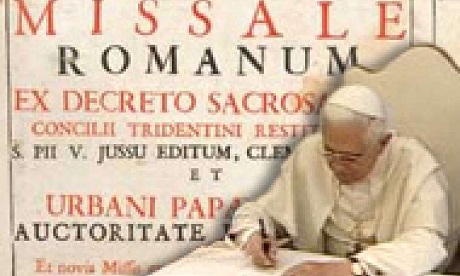The Italian bishops’ conference says a revised translation of the missal for Italy has been approved.
Conference president Cardinal Gualtiero Bassetti says Pope Francis authorised the publication of the revised translation of the third edition of the Messale Romano, which the bishops had approved last November.
It will be some months before the books are printed and available for liturgical use.
One of the changes involves the Lord’s Prayer.
It will no longer say “and lead us not into temptation” (e non ci indurre in tentazione), but will become “do not let us fall/be abandoned into temptation” (non abbandonarci alla tentazione).
The change will bring the prayer in line with the translation of this passage in the Italian translation of the Bible the bishops approved in 2008.
The Gloria will also be revised. “Peace on earth to people of good will” (pace in terra agli uomini di buona volontà) will become “Peace on Earth to people beloved by God” (pace in terra agli uomini, amati dal Signore).
The changes will be implemented to the Italian missal only and will have no effect on the English speaking world.
Francis has often spoken of his desire to update the “lead us not into temptation” part of the Lord’s Prayer.
He argues it portrays God in a false light.
“A father does not lead into temptation, a father helps you to get up immediately,” he commented.
“It is not a good translation because it speaks of a God who induces temptation.”
Francis also said other translations had already been changed to correct mistakes and to modernize the language.
“The French have modified the prayer to ‘do not let me fall into temptation,’ because it is me who falls, not the Lord who tempts me to then see how I fall,” he said.
One source says the change to the Lord’s Prayer comes after 16 years of research by experts who found a mistake in the current translation “from a theological, pastoral, and stylistic viewpoint.”
It has been translated into literally hundreds of languages from the original texts in ancient Greek, Hebrew, and Aramaic.
In 2017 Francis issued Magnum principium, which called for translations which are both faithful to Latin and respectful of the characteristics of the receptor language.
It is this second quality which was seen to suffer in the overly literalist translations prepared since Liturgiam authenticam.
He also restored authority over translations to bishops’ conferences, as the Second Vatican Council had decreed, and rolled back the creeping centralism of previous decades at odds with the Council’s decisions.
Source
Additional readingNews category: World.




